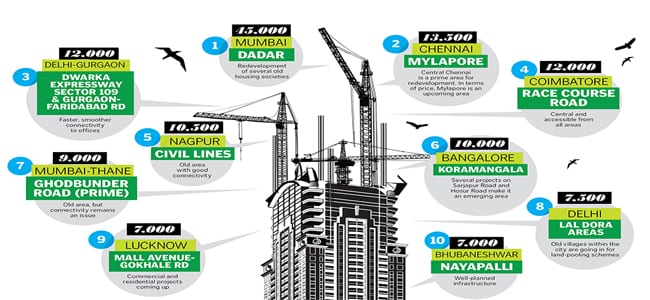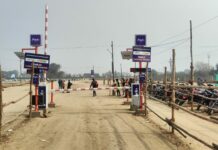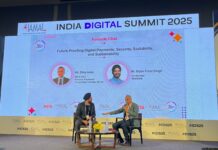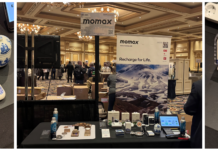Sm@rt Cities Summit 2015 on Day 2 commenced with an opening address by Pratap Padode, Chairman, FIRST Sm@rt Cities Council, where he touched upon the need for the smart cities movement to be integrated “The dictatorial and pre-prescribed way of management will not work from the government.” He emphasised that if the concept of smart cities is challenging, it also presents a galore of opportunities. “A lot of activity has to happen at the city level for smart cities, and the government is looking at private players to come forth for its development.”
The day kicked off with Vince Berkhout, Director, Aecom highlighting the importance of this year’s theme ‘From Concept to Reality’. He said, “Smart City development will have different focal points at various stages. Private industry will pick up opportunities for smart city, with the government pitching 80-85 per cent investment for private players.” An interesting focus of the session raised a critical question – Is corporate India is ready to support the aspirations of political India? To this, Shailesh Pathak, Executive Director, Bhartiya Group, stated, “Indians don’t lack engineering skill, but political will.” He added that private players are looked at as an ATM machines. And, while there is no problem at the federal or state government level, there is no clarity on who can be contacted at the city level.” In this direction, challenges were highlighted and solutions to overcome the same were discussed.
Furthermore, smart technologies come with a price tag, and in that context, financing of smart cities is one big unanswered issue in India. In this direction, the next session, moderated by Kavan Mukhtayar, Sr Partner, Frost and Sullivan, focused on the various finance models available for smartening up the existing cities. He said, “Finance is always available. In the stock market, India is looked upon as a new growth story.” To this, NDS Chari, Director, SREI + BNP Paribas, added, “Problems need to be discussed from the start: From day one, make financial institutions your partner.” Other speakers including Palash Srivastava, Director, PPPI & Programmes, IDFC; KK Gupta, Director, Resurgent India Ltd; Rajeev Mukhija, CGM, IIFCL; and Ravi Poddar, Director, CRISIL, highlighted the need for a transparent procurement process, liberal procedures along with investment from the government for research projects.

In addition to the informative sessions, one of the biggest value addition to the day was the STARTUP Innovation Showcase. The Sm@rt Cities Summit 2015 offered a never-seen-before platform to startup companies to present their unique services to fulfill the vision for the futuristic cities. Zentix presented its Smart Energy solutions, followed by NER Group (Singapore) on Smart Technology, Vulog (Paris, Europe) on Smart Mobility, Studio POD on Smart Urban Planning, Cityntel (Estonia, Europe) on Smart streetlight Control, and Allgreen Ecotech Solutions on Energy Efficiency.
Furthermore, in the face of smart transformation, utilities hold the key to smart savings as energy is required for just about everything that is operational in the city. Session moderator Shuvendu Bose, Ernst and Young, initiated the discussion on how renewable energy can be integrated in the smart grid. He highlighted the drawback for India, “We are not able to highlight the power generated. The challenge is not just financial, but also technical.” He further stressed on the need to identify the right kind of storage for power along with an ideal energy generation process. To this, L Nagahari Krishna, Director, Danfoss, added the need to establish a relation between energy and GDP. For instance, if you achieve an ‘X’ number of GDP for one unit energy used, then a city will be called smart. And, Amol Sawant, Business Analyst, ISGF, highlighted the need for integration in a sustainable manner: “The users of smart cities can be energy producers through solar roof tops.” Other experts who contributed to the session included Satish Kejriwal, Principal Consultant, Tech Mahindra and Aseem Goyal, Head-New Business & Strategic Project, Panasonic.
Also, with growing and expanding cities, mobility needs to be planned in a smarter way to be more efficient, reliable and green. On this, moderator Vince Berkhout, Director, AECOM, gave way for a new discussion with Sabrina Coccia, International Expert, Smart Cities (Paris); Umang Jain, Director, EMBARQ; Sanjeev Thukral, Country Director, Steria; Apurba Dhar, Director, Veolia Transport; and Sudesh Kumar, Team Leader-Sustainable Urban Transport, Mott MacDonald. While Coccia highlighted that “Solutions can’t come from the government, but from the people,” Thukral suggested, “If people could plot their commute through public transport, its usage will be more.” All-in-all the speakers brought to the table the type of mobility that needs to be planned for smart cities and shared solutions and intelligent transport systems that could be considered in this regard.
Among other things, the Summit also focused on Smart Utilities. This would include 24 x 7 uninterrupted supply of electricity and water along with effective waste management for citizens and industries operating within the city. The session also focused on smart power grids and street lights, smart utilities for innovative cities and public emergency and city services for emergencies and securities. Moderated by Vineeta Shetty, The SmartCitizen Org, other speakers included, Prabhajit Kumar Sarkar, VP, India Power Corporation; TR Rao, Chairman & CEO, STEPS Energy; Pawan Mathur, Director, Itron; Jasdev Soni, Principal Consultant, Infosys; Mehanaz Ansari, USTDA Representative, Trade Finance Centre Embassy of USA; and Rahul Chhabra, VP, NSWAI.
Moreover, Smart Governance could take the government one step forward in achieving its vision of developing 100 smart cities. Understand the challenges faced by the government and exploring the benefits open data schemes and open government could yield was precisely what moderator Anurag Dua, Associate Director, PwC focused on. This session witnessed the participation of BN Satpathy, Chairman, NDSAP; Dr Marek Wosinski, President, SusTranCon; Vikas Kanungo, Chairman, SPEG and T Chatterjee, Director, Indian Institute of Public Affairs. On a concluding note, the conference chair, Dr Sudhir Krishna, Former Secretary, MoUD, delivered the valedictory.
With this came to an end the successful two days Summit – organised at India Habitat Centre, New Delhi – that was coupled with intense discussions, ideations and proposed solutions. About 200 participants – from India and world over – took home with them insights and opportunities in this much talked about and smart emerging segment. Although building a smart future is not a challenge-free activity, the Summit witnessed participants with a strong ‘will’ and on that note, the way forward is evident.











